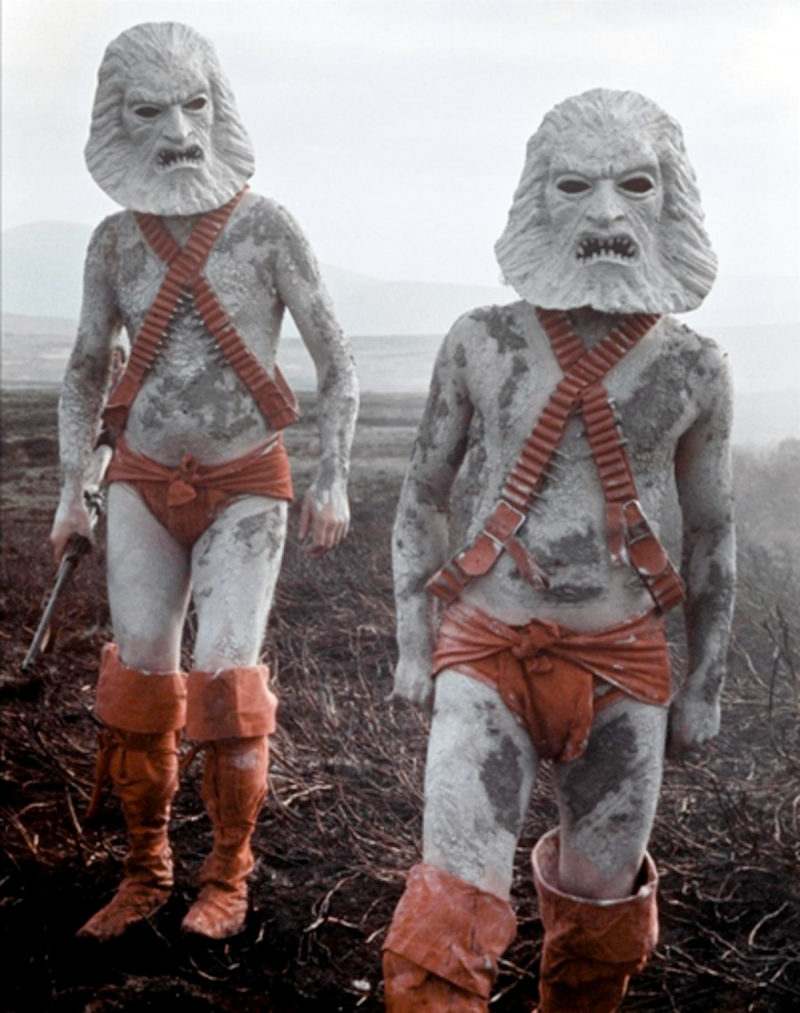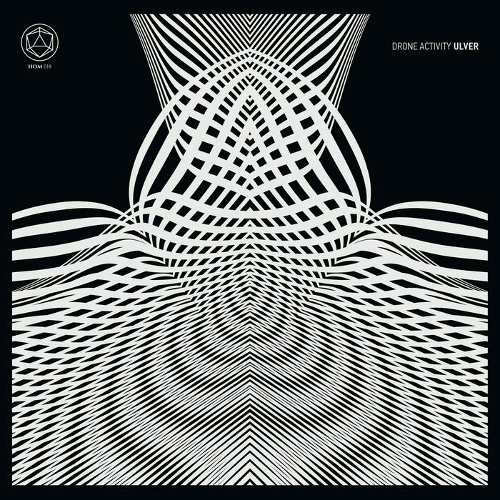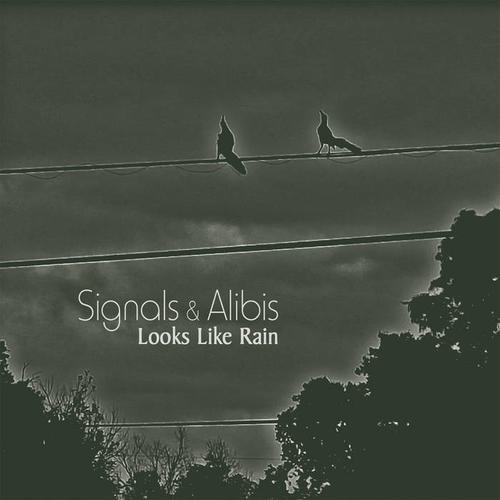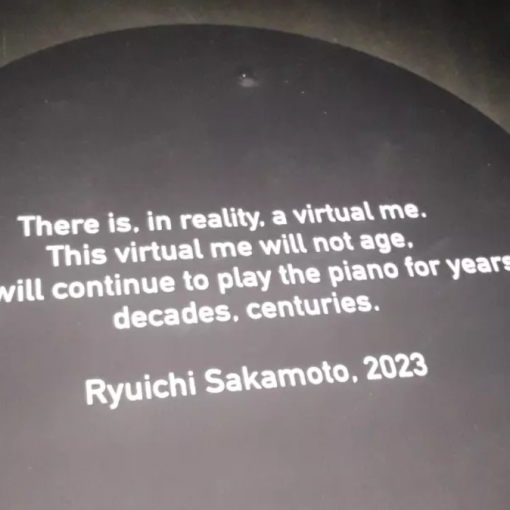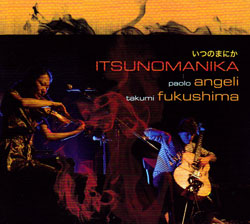 It’s a curiosity, this one. I don’t know if you’ve seen Paolo Angeli‘s prepared guitar (have a look on YouTube), but it’s legions more cumbersome than the old crocodile clips and ebows that pass for prepared guitar in some circles. Part of me thinks of tacky one-man-bands when I look at it but, luckily for Angeli, the absurd look of his creation is quickly mollified by the dexterous and intelligent use he puts it to. In fact, calling it a ‘prepared guitar’ is a bit of a misnomer. It’s more of a box of sounds that happens to be built around a guitar. He’s got all sorts of fans, hammers, resonant strings, percussive whatsits in his set-up. Fukushima, by contrast, sticks to playing ‘just’ the violin and singing here – that seems an odd way to phrase things, given how lovely her tone is, how clean her mordants and artifical harmonics are.
It’s a curiosity, this one. I don’t know if you’ve seen Paolo Angeli‘s prepared guitar (have a look on YouTube), but it’s legions more cumbersome than the old crocodile clips and ebows that pass for prepared guitar in some circles. Part of me thinks of tacky one-man-bands when I look at it but, luckily for Angeli, the absurd look of his creation is quickly mollified by the dexterous and intelligent use he puts it to. In fact, calling it a ‘prepared guitar’ is a bit of a misnomer. It’s more of a box of sounds that happens to be built around a guitar. He’s got all sorts of fans, hammers, resonant strings, percussive whatsits in his set-up. Fukushima, by contrast, sticks to playing ‘just’ the violin and singing here – that seems an odd way to phrase things, given how lovely her tone is, how clean her mordants and artifical harmonics are.
A lot of it sits closer to the Radio 3‘s Late Junction side of experimental music – so while there are bits where Angeli’s plugging a Keith Rowe-esque idea, it’s always within a tightly-controlled narrative of what the song needs, rather than exploring the textures and ideas of his guitar preparations as sounds-in-themselves. Which is great really. Both players here have built a stock of sonic ideas from a range of places – difficult artificial harmonics and ricochet playing from Fukishima, baroque bass viol styling and flamenco percussion from Angeli. There’s times where it feels like both have listened to a lot of The Wire side of experimental stuff but decided to marry that to their (obviously well-considered) affection for traditions from across Europe. For my notes on track 3 (“Vetro Soffiato”) I’ve written ‘Toshio Hosokawa baroques out,’ and the same song uses what might be a loose bridge buzzing to create a sonic effect similar to that of a hurdy-gurdy.
I suppose it’s the consolidation of different styles and techniques, marshalled into a more genteel, polite form than is often found in experimental music, is what makes this a good record for me. Extended techniques can easily fall into being the sole focus of a duo – and thus alienating a more general audience – but Fukushima and Angeli do a good job of being inviting to a range of audiences. I can’t see any reason why the sort of people who go to Froberger recitals couldn’t find something to love here. It’s definitely a record dense with well-realised ideas, but they never let the unusual set-up of Angeli’s guitar, or the extensive ideas they have at their disposal, get ahead of them. And, perhaps most importantly, it might be a nice wake-up call for anyone thinking that a prepared guitar can only make a horrendous racket. Skill.-Kev Nickells-
